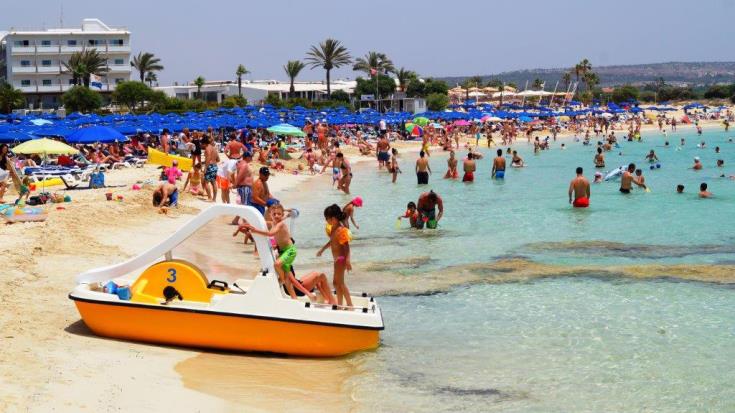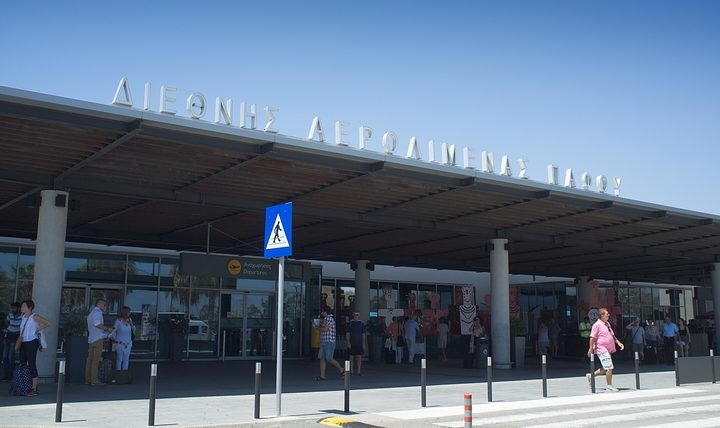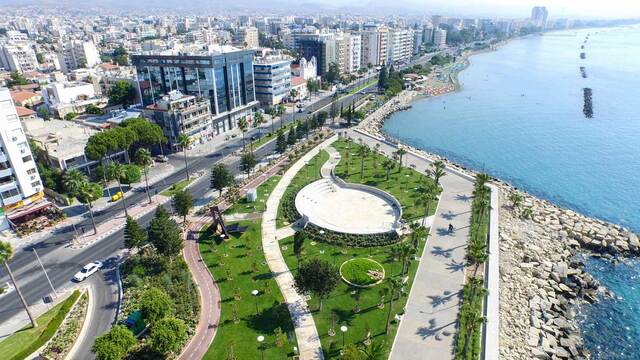By Dr Fanos Tekelas
The tourism sector has seen a substantial increase during the last 3 years as a result of the adequate strategic actions taken by policymakers and the Deputy-Ministry of Tourism.
However, the sector will experience the impact from several politico-economic factors such as Brexit which will affect the UK market.
Hence, new ways will need to be uncovered to cope with the outcome of the political decision as well as the general political instability in the region.
Besides, great efforts are being made by policymakers to develop a strategic contingency plan through cruises and travel packages with other nearby countries such as Israel and Greece.
If the right steps are to be made, we may experience substantial growth in visits from European tourists who wish to visit three different countries within a short period.
The political instability in nearby rival countries such as Turkey may lead to a turnaround for European tourists and this could be to the competitive advantage of Cyprus.
It is essential to mention that we can’t compete with other nearby countries such as Turkey and Egypt based on cost leadership but instead, we need to offer a differentiated product that tourists cannot find elsewhere.
We cannot provide an all-inclusive package for €60 per person, but tourists receive a higher quality of services in Cyprus compared to other countries.
This could serve as our competency in the competitive environment.
This is something that the Deputy-Ministry of Tourism should take into consideration in responding in 2020 by introducing attractive tourist holiday packages for Europeans and Russian holidaymakers.
Increasing seasonal tourists though is not enough. Cyprus needs to emphasise on increasing its chances for winter tourism.
This has been on the agenda of policymakers for more than a decade, but no actions were taken thus far. Agritourism could lead the way. However, this needs a substantial investment for both agritourism as well as sports tourism.
The Troodos area should be developed further while smaller communities in the region have already started taking initiatives through European support agencies for their development. Hence, I expect to see more emphasis on implementing strategies for attracting winter tourists. Based on the latest data from Eurostat, the nights spent at tourist accommodation establishments increased in 2019, reaching a total of 18.9 million more nights spent compared to the previous year which is an increase of 2.6%.
Winter tourism has tremendous potential and it is something that policymakers should take into consideration.
However, the arrivals of winter holidaymakers are still low. According to the Cyprus Statistical Service, 158,685 tourists visited Cyprus in November of 2018 while 106,563 tourists visited Cyprus for their holidays in December of 2018.
Moreover, 81,970 tourists have visited Cyprus in January of 2019 and 105,571 in February of the same year.
Among these numbers, it is vital to show the nationality of tourists visiting the island for winter tourism. Taking into consideration the months of January and February of 2019, Greece, Germany, Poland, UK, Russia, Ukraine and Israel are among the nationalities that favour Cyprus for their winter holidays.
| Nationality | Tourist Arrivals | |
| January 2019 | February 2019 | |
| United Kingdom | 23447 | 37046 |
| Greece | 11204 | 12047 |
| Israel | 8684 | 7936 |
| Russia | 7876 | 9258 |
| Germany | 3291 | 5206 |
| Poland | 2119 | 2829 |
| Ukraine | 2079 | 2646 |
| Other countries | <2000 | |
Source: Cyprus Statistical Service (2019)
Hence, a long-term strategic plan should be developed for the next decade including the establishment of ski resorts and areas while tourist markets and festivals should be made available from November-April as well as further development of Troodos rural areas.
Sports tourism is something that can easily be exploited since Central European tourists seem to be interested in it.
In fact, other nearby competitive destinations haven’t highlighted the importance of this, and it is something where Cyprus can gain a competitive advantage.
Hence, we need to focus on laying the foundation and development of the infrastructure on these two types of tourism to increase tourist arrivals throughout the year.
The Deputy-Ministry of Tourism has already shown its interested in developing this, being determined to establishing sports tourism as an internal part of the country’s tourism product.
However, further moderations should take place to accommodate this. For instance, in other European countries, a complex infrastructure has been installed to satisfy the needs of sports tourists.
This, of course, did not take place in a year. It needs constant and continued support and advancement as well as a long-term strategy for the future.
We have been focusing on the birth of new-high luxury hotels in key locations of the island and little emphasis has been given on enhancing other touristic products such as sports tourism.
Hence, political and economic support should be provided on this front to be able to promote activities that Cyprus can offer both during the summer and winter season.
International marathons, mountaineering, alpinism, trekking, hiking and climbing, bicycle racing and other outdoor activities and competitions should be organised throughout the year that will promote sports tourism and attract winter tourists to the island.
Connectivity is the key
Having said that, it is of utmost importance to emphasise developing the infrastructure to accommodate such activities.
Nonetheless, we have seen specific actions taking place by several other key stakeholders, such as Hermes Airports.
Air connectivity is vital and as such, we need to focus on connecting Cyprus with all the major European capitals to promote both summer and winter tourism.
Capitals such as Paris, Helsinki and Lisbon are some destinations for which no direct flights currently exist.
Therefore, more effort is needed on the air connectivity component to be able to support sustainable winter tourism along with other strategic actions that need to be taken from the policymakers.
Finally, I believe that we need to shift from the all-inclusive/lower quality products and services to more bed and breakfast or half board services with superior quality.
We have already started experiencing this with the addition of new high-quality hotels that can also attract business tourism, among others.
Cyprus is at the crossroads of three continents and we need to take advantage of its location by offering different quality services (to target different segments of the European market at the same time) and focusing on the development of business, sport and winter tourism in general.
Finally, the Deputy-Ministry of Tourism has already announced that it will be presenting the new strategic plan for Tourism in January 2020.
I am very interested to see whether the ministry has considered alternative ways of promoting the tourist product of Cyprus in an attempt of gaining a sustainable competitive advantage and increasing tourist arrivals throughout the year.
The writer is Director of the Centre for Entrepreneurial Development, Alliance and Research (CEDAR), Deputy-Course Leader of Hospitality and Tourism Management, Lecturer in Innovation and Entrepreneurship UCLan Cyprus










